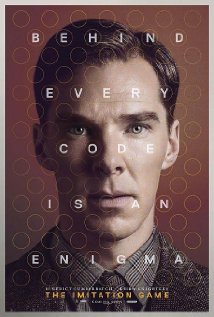The Imitation Game, the biographical film about Alan Turing is absolutely mesmerizing.
The Imitation Game tells the story about the father of Mechanical and Digital computing that reveals a person who is shy, loving, somewhere between socially-awkward and socially-inept, full-of-heart, heartless, overbearing, demanding, relentless, brilliant, does not suffer fools, and possesses (possibly) the driest and most sarcastic sense of humor ever documented on film. Oh… and he almost single-handedly saves the world.
The Imitation Game also tells a story of government secrecy, the fickleness of espionage, sacrificing a life or many lives for the-greater-good and destroying a life and public perception over one law, while demanding the same person remain quiet about the breaking of others by others.
Although not flawless (i.e. only 99.44379%), The Imitation Game presents Turing’s life with remarkable precision, timing, and story-telling. The largest and slightest differences in what is Britain in the 1920’s, 30’s, 40’s and 50’s is put on display with great acumen.
Benedict Cumberbatch (Atonement, Tinker Tailor Soldier Spy, War Horse) is to put it simply – sensational. Kiera Knightly in a supporting role (Bend It Like Beckham, Atonement, A Dangerous Method) as Joan Clarke is equally convincing.
The Imitation Game’s success is secured through a wonderful script by Graham Moore based on Andrew Hodges Book “Alan Turing: The Enigma”, and a memorable music score by Alexandre Desplat (Argo, Zero Dark Thirty).
The Imitation Game also works because the supporting cast is so convincing – even in the more conventional roles. Actor and Director Charles Dance (Alien3, Last Action Hero, Game of Thrones) is perfect as Commander Denniston, as is Mark Strong (Syriana, End Game, Zero Dark Thirty) in the role of Stewart Menzies of MI6.
